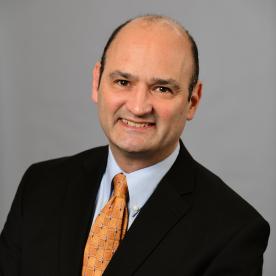
Significant delays in examination of Canadian trademark applications continue, both for reasons related and unrelated to the pandemic. Backlogs in first examination of most applications are getting worse, with first examination ranging from 16-32 months from filing or more. It is like watching a snail pause to catch its breath.
This article updates an article we first published in the summer of 2020. When this article was first published, CIPO was examining applications filed in the Fall of 2018 and delays in first examination were on the order of 24 months. At the time, we anticipated that first examination of all applications filed prior to June 17, 2019, when Canada’s trademark laws changed significantly, would take place by Summer 2021. We were too optimistic. CIPO is still examining applications filed in the last few weeks of 2018 and first few weeks of 2019. By way of example, an application filed in December 2018 by FIFA to register QATAR 2022 as a trademark (presumably in anticipation of the World Cup soccer championship scheduled to take place there next year) is still awaiting examination as of this writing. Given the current backlog, we now expect that most Canadian trademark applications filed prior to June 17, 2019 should be examined by early 2022.
As noted above, some of the delay was and is clearly due to the effects of the pandemic. However, some of the delay in examining many applications is also attributable to CIPO’s prioritizing of certain applications over others. While until recently and for many years, CIPO largely examined applications in the order in which they were filed, CIPO has more recently adopted a system by which it prioritizes certain applications over others.
First, as we have previously reported, CIPO has allowed expedited examination of certain applications, where the applicant can file evidence that, for example, the application relates to medical goods or services related to COVID-19; or to prevent imminent or ongoing infringement. Where appropriate affidavit evidence is filed, our experience has been that CIPO has examined such applications with relative lightning speed, sometimes in a matter of a few weeks.
Second, CIPO is prioritizing applications filed in Canada pursuant to the Madrid Protocol. CIPO appears determined to examine such applications within 18 months of filing and has managed to conduct first examination of such application within 17 months or less. As of this writing CIPO is examining Madrid-based applications filed in late March 2020.
Third, for non-Madrid applications, CIPO is giving priority in examination to applications which only cover a pre-selected subset of goods and services (the so-called “pick list”). However, the benefits of using the pick list are currently small. The backlog for examination of these application is still on the order of 30 months, with such applications filed in February 2019 currently being examined.
Despite the continuing and worsening delays, we continue to hold out some hope for improvements in the future.
Once CIPO manages to get through the backlog of approximately 38,000 applications filed before June 17, 2019 awaiting examination, examination should speed up, since Canadian applications filed after that date are required to be divided into classes of goods and services pursuant to the
Nice Convention. As a result, the need to examine (or re-examine) applications for classification should diminish significantly.
As well, CIPO continues to hire and train new examiners. So long as it does not experience significant attrition of staff, a greater number of examiners should result in the ability to examine more applications.
CIPO has indicated that it hopes to have a plan to return examination of trademark applications in Canada to closer to a more historical speed of examination by 2025.
It has been frustrating for applicants (and their trademark agents) in Canada to watch the snail’s pace of examination of Canadian trademark applications in the last few years, exacerbated by the continuing effects of the pandemic. However, as the effects of the pandemic (we remain hopeful) wane and CIPO resumes more normal operations, the snail will end its pause and start steadily moving forward with greater speed.
If you have further questions, please contact a member of our trademark group:
E-TIPS® ISSUE
Disclaimer: This Newsletter is intended to provide readers with general information on legal developments in the areas of e-commerce, information technology and intellectual property. It is not intended to be a complete statement of the law, nor is it intended to provide legal advice. No person should act or rely upon the information contained in this newsletter without seeking legal advice.
E-TIPS is a registered trade-mark of Deeth Williams Wall LLP.
